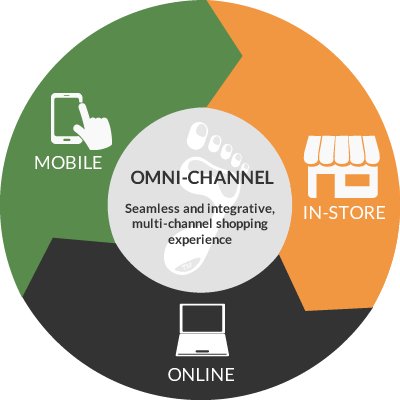Omni-channel has been a hot topic among retailers in the recent years. It has become a priority for every retailers to create and maintain a connected, consistent customer experience across all channels.
To expand on that topic, here are the top 3 reasons:
1. Because omni-channel will help growth internationally
For companies large and small, tapping into markets outside of domestic borders is a major goal. But opening a brick-and-mortar store can be expensive and altogether impractical — especially for a startup firm.
Instead,to launch a website and then offering eCommerce and mobile commerce shopping remains a top method for testing the waters before jumping in completely. Besides, many companies come to realize that eCommerce and mobile commerce may be the best method for reaching international customers and a brick-and-mortar presence is not even necessary.

2. Because omni-channel will also improve your offline business
But when brick-and-mortar stores are a must, all channels should be optimally aligned so that they play off one another. This is precisely the point of omni-channel.

Retailers such as Finish Line, DSW and Footlocker all have boasted about how their Web and mobile experiences have jolted overall sales by complementing their brick-and-mortar presence. Particularly, “Buy Online Pick-up in Store” and “Buy Online Ship to Store” programs have helped several retailers recover from slipping sales and profits in 2015.
3. Because omni-channel will keep your business connected with your customers

Brands and retailers need to engage with their customers often to ensure that their products remain top of mind. Advertising via traditional media channels — such as television, radio and print magazines/newspapers — is one method, but social media and branded websites are becoming even more critical for communicating with existing and potential customers.
While revenue growth is the priority, successful marketers know that every communication with a customer doesn’t have to be a sales pitch. Social media helps companies build a long-term relationship with customers via consistent (but not excessive) communication; e-mail newsletters give loyal shoppers a heads up that a mega-sale is coming. Such tactics can make customers feel that their patronage is appreciated.






